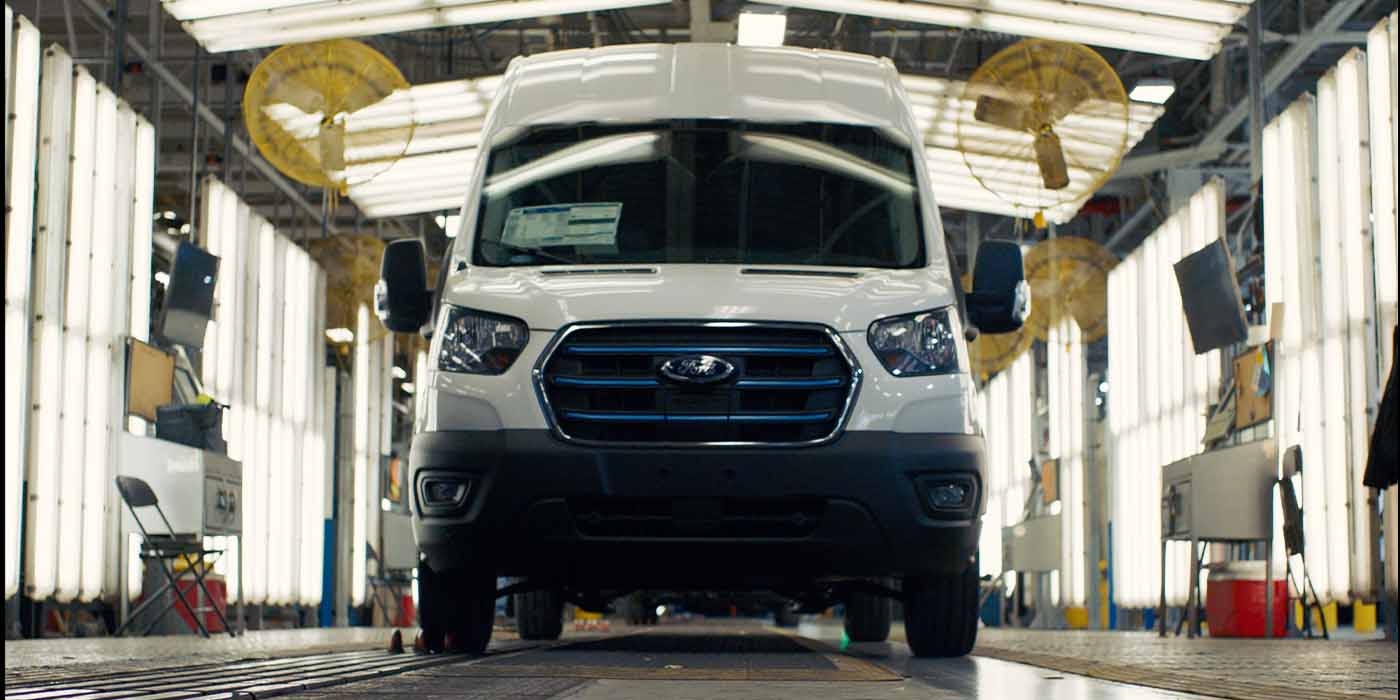Ford E-Transit year one: 745,000 gallons of gas saved across 12M miles, 57% reduced CO2 output

Ford is celebrating one year of its all-electric E-Transit vehicles hitting roads with a slew of encouraging stats surrounding the EV. Since February of 2022, Ford E-Transit drivers have already completed more than 12 million miles navigating through the US and Canada, alleviating a huge amount of gasoline required for combustion vans of the same size. Lots more to unfold here from Ford, learn more below.
The post Ford E-Transit year one: 745,000 gallons of gas saved across 12M miles, 57% reduced CO2 output appeared first on Electrek.
Ford is celebrating one year of its all-electric E-Transit vehicles hitting roads with a slew of encouraging stats surrounding the EV. Since February of 2022, Ford E-Transit drivers have already completed more than 12 million miles navigating through the US and Canada, alleviating a huge amount of gasoline required for combustion vans of the same size. Lots more to unfold here from Ford, learn more below.
The E-Transit was announced by Ford Motor Company back in 2020 as an all-electric version of its already popular Transit van – perfect for commercial operations and last mile deliveries. We followed the all-electric van as it progressed through development, locked in official pricing, and inevitably reached scaled production at Ford’s facility in Kansas City.
In February of 2022, the first E-Transits starting going out to Ford customers and have continued to grow in popularity and fleet size across the commercial EV industry. Coke Canada began piloting the vans last summer, and most recently, the US Postal Service awarded Ford a contract for over 9,000 E-Transits to use for mail and parcel deliveries.
Using telematics gathered from the E-Transits this past year, Ford Pro has shared some interesting stats that not only show proof of improved sustainability in the commercial segment, but increased adoption by companies choosing to integrate the EVs into their operations around the world.
Ford E-Transit is the best selling electric van
In the US, Canada, and all of Europe at least, but that’s pretty substantial. Ford shared those figures as well as a bunch of other data in a press release today as it celebrates the E-Transit’s first year on public roads.
To date, Ford says the E-Transit has saved over 745,000 gallons of gas that would have otherwise been used by traditional combustion vans, equating to over 4.3 million kg of CO2 spared from entering our Earth’s atmosphere.
Compared to a traditional combustion delivery van, Ford states driving a low-roof E-Transit can deliver a 57% CO2 output reduction over the course of its lifetime in operation. Ford Pro CEO Ted Cannis spoke to the electric van’s progress in year one, and the encouraging numbers gained from its telemetry data pertaining to both the environment and customer business operations:
Businesses looking to adopt battery electric technology is happening at a global scale, and E-Transit – along with the Ford Pro one-stop shop of software, services and charging solutions – is at the forefront of that revolution. In its first year on the road, E-Transit has made an immediate impact, and we are just getting started.
The E-Transit has been delivered to all 50 states combining for 6,500 total vans sold at the end of 2022. As the best selling electric van on multiple continents, Ford shared the E-Transit currently accounts for approximately 61% of the entire electric van market. It is also the current sales leader in 28 of the 30 trades recognized by S&P Global Mobility, including construction, retail, and government.
Using the data gathered above, Ford has already put its all-electric wheels into motion with plans to bolster E-Transit production in Kansas City alongside other EV models like the F-150 Lightning and Mustang Mach-E.
Ford is now targeting an annual production increase of 38,000 on the wings of a $95 million investment that includes the addition of 1,100 union jobs. Those production increases are expected to begin growing as early as next month.
FTC: We use income earning auto affiliate links. More.


